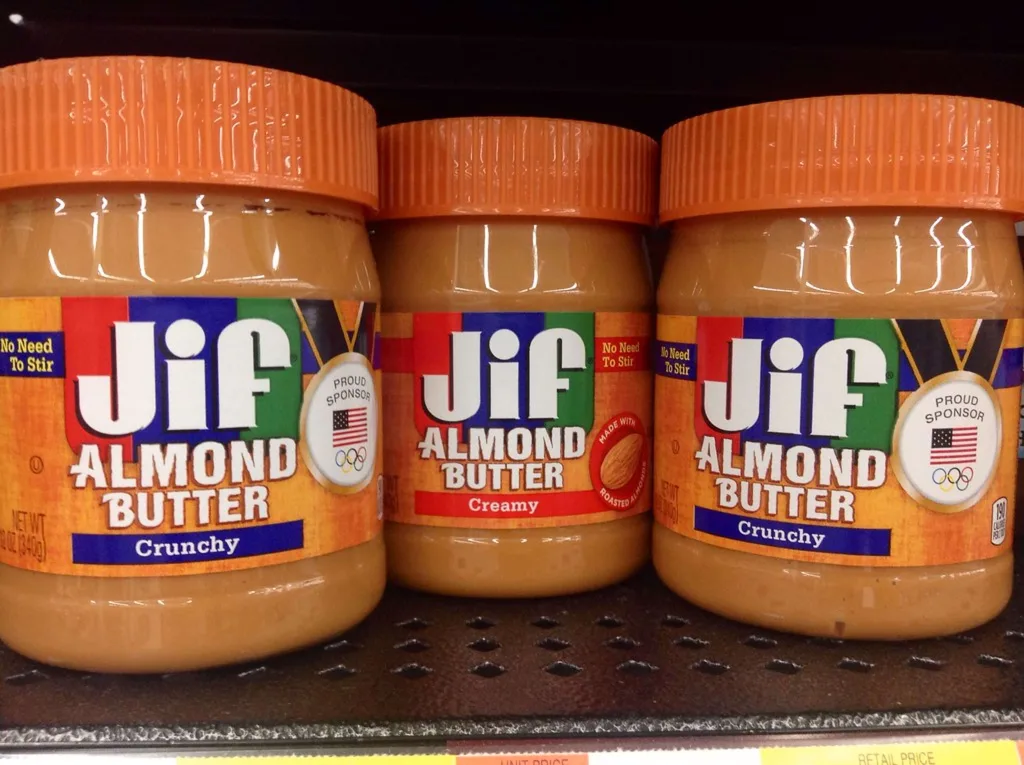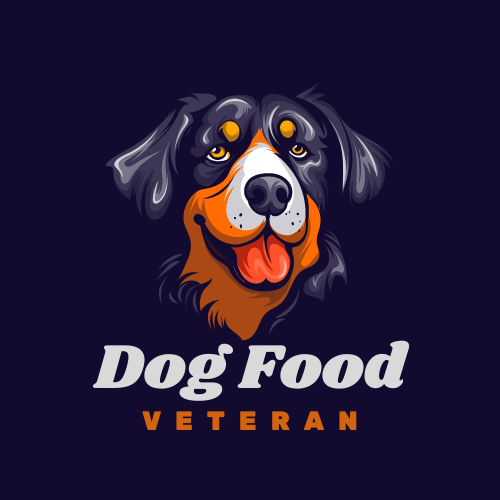Yes absolutely, dogs can enjoy almond butter, but only in small amounts. Giving it to them in moderation is important because their bodies are different from ours. Treats like almond butter are high in fat and calories and too much of this can cause weight gain and pancreatitis.

Some almond butter also contains xylitol, an artificial sweetener that is toxic to dogs. As responsible pet owners, do not fail to check the ingredient list and only give your dog plain almond butter. Just like with any new food, start with a small amount and watch for any allergic reactions or tummy troubles.
What’s in it and How is it Made?
Almond butter is just ground almonds. You make it by grinding roasted or raw almonds into a smooth, creamy paste. The buttery texture comes from the natural oils in the almonds.
Homemade vs. Store-Bought Almond Butter
Wondering the difference between the two? Let me help you. The almond butter you see at stores while shopping for groceries has added ingredients like salts, oils, and sweeteners to improve how it tastes and shelf life. Some even add more processed ingredients or stabilizers. But what you should take home most importantly is the presence of xylitol in this almond butter, remember what I said about the toxicity of this artificial sweetener to your dog’s health.
For homemade almond butter, the beauty about them is in the preparation. Most times we prepare them with no added ingredients and this eliminates the risk of xylitol and helps you know what exactly is in the almond butter. However, you have to be careful because it can separate over time. But the good thing is, making it yourself lets you control the ingredients and avoid added sugars.
The Benefits of Almond Butter for Dogs (In Moderation)
Healthy fats: Almonds provide healthy fats, including omega-3 and omega-6, which promote healthy coats and skin.
Vitamins and minerals: Almond butter has vitamins like vitamin E and minerals like magnesium, phosphorus, and copper, which are important for overall health.
Protein: It’s a good source of protein, especially for dogs on vegan diets.
When Almond Butter Can Be a Problem
While almond butter can be a healthy treat for dogs in moderation, there are also downsides you need to be aware of:
Digestive upset: Almond butter is high in fat and can cause diarrhea, vomiting, and pancreatitis if dogs eat it too much. However, dogs with sensitive stomachs might struggle to digest it even in small quantities.
Xylitol poisoning: Most of the almond butter you pick in the shops contains xylitol, which is dangerous to dogs. Even a small amount can cause hypoglycemia and liver damage. To be on the safe side, always check ingredient labels and avoid the ones with xylitol.
Choking hazard: Almond butter can have large chunks of almonds, which can be a choking risk, especially for smaller dogs or dogs that gulp their food. Supervise your dog while they eat and avoid almond butter with large pieces.
Choosing the Right Almond Butter for Your Dog
When selecting almond butter for your dog, choose varieties that are safe and free from harmful additives. Here are some tips for picking the right almond butter:
Look for natural, unsweetened almond butter: Avoid any products with added sugars and xylitol by checking the ingredient label carefully.
Consider making homemade almond butter: When you make it yourself, you have complete control over the ingredients and can ensure that it’s free from harmful additives.
Limiting Your Dog’s Almond Butter Intake
While almond butter can be a sweet treat, please don’t fail to practice moderation due to its high fat and calorie content. Too much of almond butter can lead to issues like:
Weight gain: Almond butter is filled with calories and can contribute to obesity, increasing the risk of health problems like joint issues and diabetes
Pancreatitis: The high-fat content in almond butter can trigger pancreatitis in dogs. Pancreatitis can also cause vomiting, abdominal pain, and other severe symptoms which will need you to contact your vet immediately.
Digestive upset: Even in dogs without specific health conditions, overeating almond butter can lead to diarrhea, vomiting, and stomach discomfort. This is because dogs find it difficult to digest large amounts of fat and may experience gastrointestinal distress.
Safe Serving Tips
To ensure your dog enjoys this treat safely, please pay attention to proper serving sizes. Here are some tips:
- Small dogs (under 20 lbs): 1/2 – 1 teaspoon per day
- Medium dogs (20-50 lbs): 1-2 teaspoons per day
- Large dogs (over 50 lbs): 1-2 tablespoons per day
Although these are general guidelines, consult your vet for recommendations based on your dog’s size, age, and health.
Creative Ways to Serve Almond Butter
Here are some creative ways to serve this treat to your pups:
Training Treats: Roll small amounts into balls for training
Kong Stuffing: Stuff a Kong toy with almond butter, and freeze it for a long-lasting treat
Frozen Enrichment: Spread a thin layer on a bowl or lick mat, and freeze it for cool treats on hot days.
Recognizing Allergic Reactions
Watch for signs of allergies, such as:
- Itchy skin or ears
- Hives or rash
- Swelling of the face, lips, or tongue
- Vomiting or diarrhea
- Difficulty breathing or wheezing
Stop feeding it to your pets if you see these symptoms and consult your vet.
Alternative Nut Butters for Dogs
If you prefer to avoid almond butter or want to provide variety, other nut butter can be great alternatives and safe options. One of the popular options is unsweetened, natural peanut butter. However, remember to always check the label for xylitol.
Also, there are nut butter you have to avoid completely like macadamia nut butter and walnut butter as they can be harmful to dogs.
Conclusion
To round up, almond butter can be a tasty and nutritious treat for your pup when you give them moderately. Don’t forget to always choose natural, unsweetened varieties without xylitol and watch for any allergic reactions or digestive issues.
Consult your vet for advice on serving sizes and always make informed decisions about your dog’s diet to ensure their health and well-being.
Read More: Can Dogs Eat Edamame?

